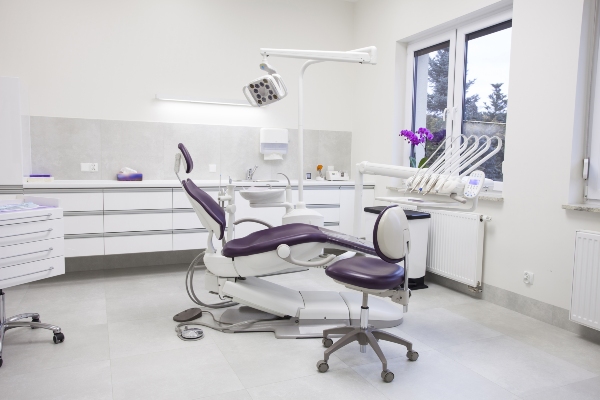What Is a Dental Emergency?

What is a dental emergency? By understanding what types of injuries, infections and trauma are considered dental emergencies, one can be better equipped to recognize them when they happen. This makes it easier to get the help you or a family member needs when the situation arises.
Kinds of dental emergencies
Many things can constitute a dental emergency, but it is important to know the difference between an emergency and something that can wait a few days before requiring attention from a dentist.
Identifying emergency situations
The most common types of dental emergencies are fractured, cracked, chipped, broken or knocked-out teeth, especially in cases where the tooth’s root or nerves are exposed. Painful or leaking infections in the mouth, of any variety, should also be promptly addressed. A swollen jaw, dental abscess, loose teeth, injured gum tissue and excessive pain or bleeding from the gums also requires immediate attention.
There are other dental issues that may cause discomfort or even a small amount of pain. These require a visit to a dentist within a few days but are not generally labeled as an emergency. Rather, they are ranked at a lower tier and only considered to be a dental urgency. These include toothaches, sensitive teeth, mild pain and minor fractures.
Some emergencies involve damage or problems that include the teeth or gums but also extend beyond them, such as trauma from a car accident or serious health issues. If someone is having trouble breathing, is in extreme pain or is bleeding profusely, call 911 first. Paramedics can address any urgent health needs then help get the patient to a dentist.
Taking care of the tooth on the way to the dentist
The most important thing is to stay calm. For fractures, cracks or broken teeth, save tooth fragments and rinse the mouth with a solution of salt water and a splash of hydrogen peroxide. Do not let tooth fragments dry out, so rinse them off and then immerse them in milk or saliva until reaching a dentist.
Dental wax can be applied to sharp tooth edges, compresses can be applied to reduce pain or swelling, and gauze or clean fabric can be applied to bleeding gums. Patients in pain may take ibuprofen but should avoid aspirin, as it is an anticoagulant (medicine that makes blood thinner).
Avoiding dental emergencies
Above all, the easiest way to avoid dental emergencies is to practice good oral hygiene and visit the dentist for regular checkups and cleanings. A dentist will check existing cavities and crowns to make sure they are clean and secure. It can also be beneficial to avoid very hard foods and dangerous situations that could lead to falls or fights.
Need a dentist for your dental emergency?
Injuries, infections or trauma to the mouth can be considered a dental emergency. If you are experiencing pain or can see a tooth’s inner structure, contact a dentist immediately.
Request an appointment here: https://www.newyorkdentaloffice.com or call New York Dental Office at (212) 548-3261 for an appointment in our New York office.
Check out what others are saying about our services on Yelp: Read our Yelp reviews.
Recent Posts
Scheduling an initial visit to a dental practice marks the first step toward maintaining optimal oral health. Proper preparation for this appointment ensures a seamless experience, allowing the dental team to provide the highest-quality care possible. Understanding what documents and information to bring facilitates efficient care, reduces stress, and helps patients feel comfortable and informed…
Dental practices provide essential oral health services to patients of all ages. These services range from preventive and restorative treatments to cosmetic and emergency procedures. Understanding the types of care available at a general dental practice can help patients make informed decisions about their oral and overall health.Preventive care is a cornerstone of dental practice…
Regular visits to a dental practice provide essential care for achieving and maintaining optimal oral health throughout a patient’s lifetime. Beyond treating immediate dental concerns, a dental practice emphasizes preventive care, patient education, and tailored treatments designed to safeguard oral health for years to come. Understanding the role of professional dental care underscores the importance…
Endodontics is a branch of dentistry dedicated to saving teeth by treating problems inside the tooth. It focuses on the health of the tooth's pulp and roots, essential to your smile's overall strength and function. Endodontics could be the key to relieving discomfort and preserving your natural teeth if you are experiencing tooth pain or…



